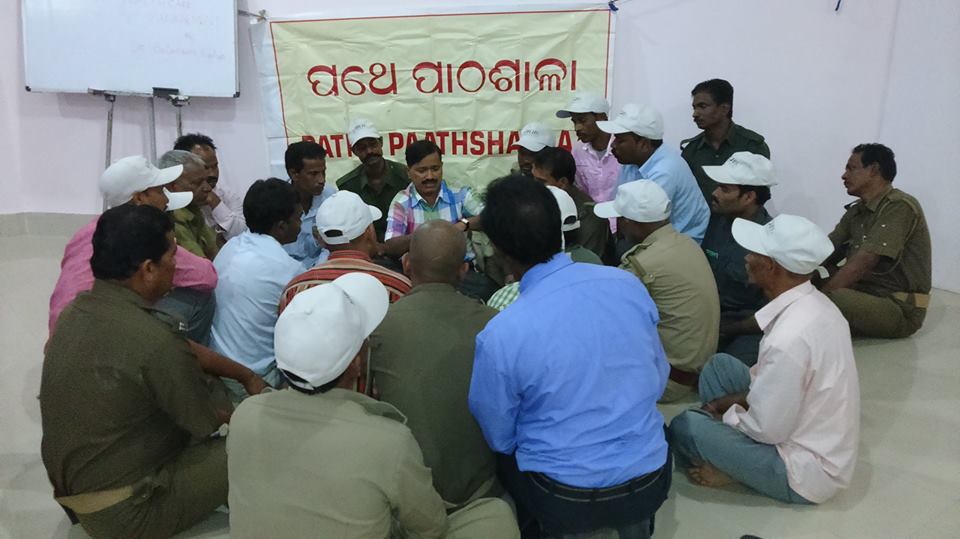In Odisha’s rural hinterland, ‘Pathe Paathshaalaa’— a school on the move for farmers — is creating the buzz on how laboratory wisdom is transferred to farmers involved in agriculture, fishery and livestock farming.
The sight of pastoralists and marginal farmers listening attentively to a senior scientist in sprawling pastures or village community halls may appear strange to many.
But in Odisha’s rural hinterland, ‘Pathe Paathshaalaa’— a school on the move for farmers — is creating the buzz on how laboratory wisdom is transferred to farmers involved in agriculture, fishery and livestock farming.
Balaram Sahu, a senior veterinary scientist, mooted the idea and has been single-handedly putting this concept into action for the last six years.
“At present, training classes for farmers are conducted by different agencies, including government institutions, on different livelihood options like agriculture, fisheries, and livestock keeping. These training sessions are mostly conducted in cities with jargon in English that many of the poor farmers are not very comfortable with,” said Dr. Sahu, who is research officer at Odisha Biological Products Institute.
“So we thought why cannot we go to places where the farmers stay and interact with them in an environment in which they are comfortable. The journey of Pathe Paathshaalaa commenced at Dalibati village in Ganjam district in 2008 when 33 goat-keepers were taught the nuances of raising goats.”
In the journey of six years, more than 350 classes have been conducted in different parts of Odisha. From Maoist-affected Nuapada district to the cyclone-hit Ganjam district and from migration-prone Bolangir to coastal Kendrapara district, Pathe Paathshaalaa has stirred the curiosity of farmers and expanded their knowledge of farm practices. It has imparted training to more than 6000 farmers on low input, sustainable livestock rearing and agriculture at their doorsteps.
Speaking to The Hindu, Bishnupada Sethi, Secretary of State Fisheries and Animal Resources Development, who mentored the effort, said, “This is a pioneering effort to reach out to farmers. The extension programmes in the country are often found to be half-hearted efforts. But making farmers skilful in their backyard is something which should be applauded.”

